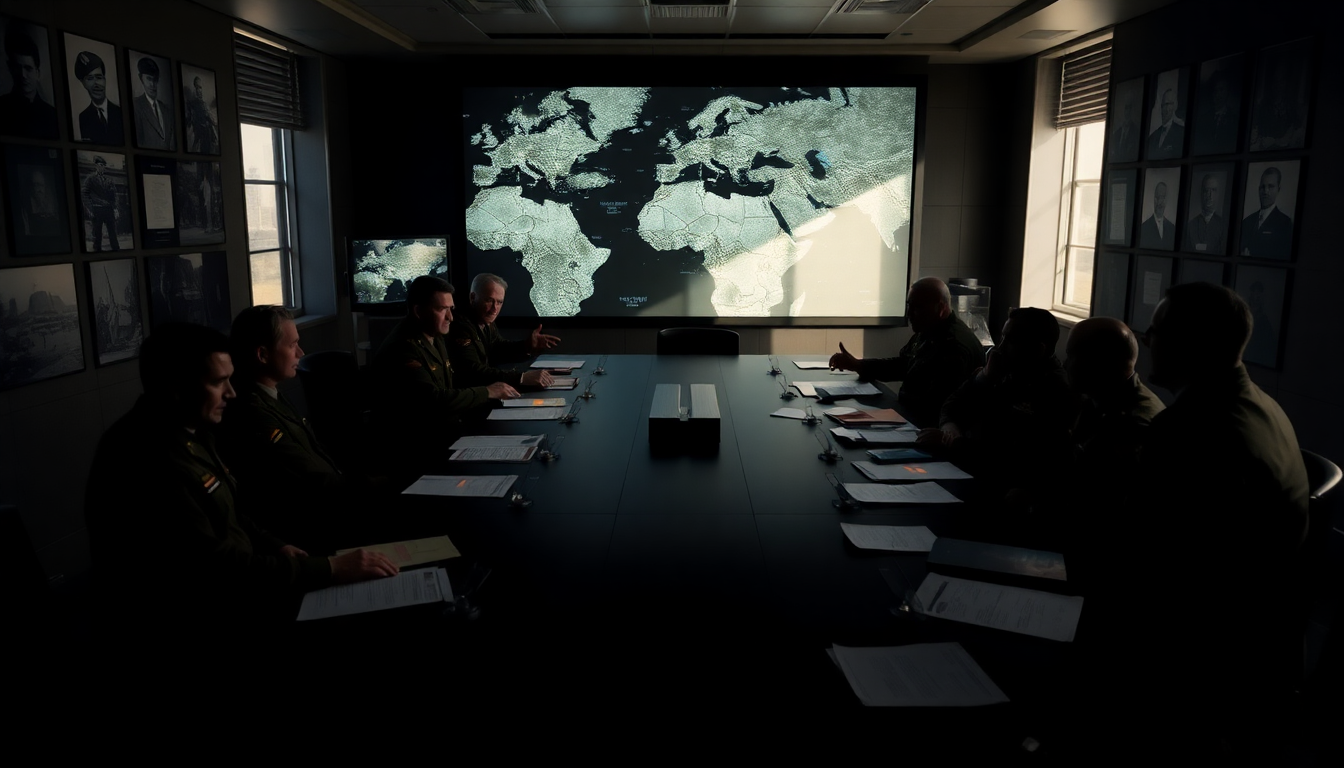Table of Contents
In recent weeks, the political landscape surrounding US military involvement in Iran has become quite a tangled web. With ongoing tensions between Iran and Israel, President Donald Trump’s announcement of a potential military decision looming within two weeks has ignited a fiery debate across political lines—even among his own ‘America First’ supporters. Voices like Steve Bannon and Marjorie Taylor Greene have openly criticized any military operations that could deepen the US’s entanglement in Middle Eastern conflicts, advocating instead for a diplomatic route. But what does this mean for the future?
The Current Geopolitical Climate
The backdrop here is an escalation in rhetoric and military posturing that’s hard to ignore. As the US government assesses its next moves, a multitude of factors is swirling in the mix. President Trump has hinted—through White House Press Secretary Karoline Leavitt—that negotiations with Iran might soon be on the table. This more nuanced approach suggests the administration is weighing the possibility of diplomacy against military options. Leavitt has also raised alarms, stating that Tehran may be closer to acquiring the capability to deploy a nuclear weapon, adding a significant sense of urgency to the situation.
When we zoom out, the complexity of US-Iran relations reveals itself as a saga that’s been unfolding for decades, shaped by historical grievances and geopolitical interests. The dialogues—both direct and indirect—point to a long-standing effort to engage with Iran on multiple fronts. Yet, the real question remains: how effective have these negotiations been, especially given the recent military escalations in the region?
Internal Political Divisions
Inside the political arena, it’s clear there’s a sharp divide on how the US ought to respond to Iran. Key figures from Trump’s ‘America First’ faction, like Steve Bannon, have publicly warned against military intervention. They argue that any support for Israel’s objectives regarding Iran’s nuclear ambitions should hinge on a solid diplomatic agreement. This viewpoint highlights a significant ideological rift within the Republican Party, as they grapple with balancing national security interests and a commitment to non-interventionism.
Marjorie Taylor Greene’s position is part of a growing faction that questions whether further military commitments in the Middle East are wise. This internal dissent may influence the administration’s strategy moving forward, as the political fallout from military engagement could alienate constituents who lean toward a more isolationist foreign policy. Can the administration navigate these waters without losing support?
Implications for Future Diplomacy
The looming threat of military action against Iran raises critical implications for both US foreign policy and international diplomacy. A military strike could heighten tensions not just with Iran, but also with allied nations worried about regional stability. Looking back, the history of US military interventions often serves as a cautionary tale; these actions frequently lead to extended conflicts with unexpected outcomes. So, what lessons can be learned?
As this situation unfolds, it seems likely that the spotlight will remain on diplomatic negotiations. The success of these discussions will be pivotal in determining whether military action becomes unavoidable. If the Trump administration opts for diplomacy, past negotiation efforts will undergo scrutiny, and the quest for a new framework in US-Iran relations will emerge as a crucial area to explore. Will they find a path forward?
Conclusion: The Path Forward
As President Trump gears up to make a critical decision regarding US involvement in Iran, the implications of this choice will echo well beyond the immediate conflict. Striking the right balance between military readiness and diplomatic engagement is vital for shaping the future of US-Iran relations and their broader impact on global stability. Eyes will be glued to any signs of progress in negotiations, as well as the administration’s willingness to adapt its strategy in response to both internal and external pressures. The big question is: will we see a shift towards diplomacy, or are we headed for a standoff?


